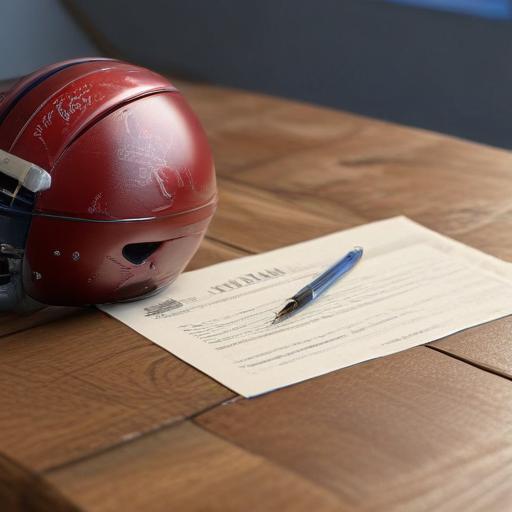ORCHARD PARK, N.Y. — James Cook emerged from the Highmark Stadium tunnel in full pads Saturday and took a first-team rep during 11-on-11 warmups, but he did not play in the Buffalo Bills’ 34-25 preseason loss to the New York Giants. Cook, who has not practiced since an Aug. 1 intrasquad scrimmage while seeking a new contract, spent the game on the sideline in uniform, occasionally using a massage gun and later wearing sunglasses and running shoes.
Coach Sean McDermott said the team wanted Cook to play and that he and Cook had a “good conversation” ahead of the game. McDermott added that Cook agreed to warm up but declined to play “due to his situation right now.” When asked whether Cook would be at the next full-go practice Tuesday, McDermott declined to expand, saying he preferred to discuss players who participated in the game.
Quarterback Josh Allen has publicly expressed the team’s desire to have Cook on the field. “You’d be crazy to say we don’t want him out there,” Allen said this week, noting the business side of negotiations and the generational impact of NFL pay.
Cook is entering the final season of his four-year rookie contract, a deal worth $5.83 million, and believes his play merits a new pact. He rushed for 16 touchdowns last season — tying a club record — and added two receiving scores, earning Pro Bowl honors the past two seasons. Still, questions linger about the market for running backs and Buffalo’s willingness to invest heavily in a player who is not a complete three-down back, particularly given concerns about pass protection.
Inside the locker room, reactions were measured. Teammate Ty Johnson said Cook is “a man about his business, about his money,” while cornerback Christian Benford—one of Cook’s 2022 draft classmates who has since signed a second deal—suggested he would respond differently and focus on performance regardless of contract status.
Buffalo’s running backs shared the load Saturday: rookies and backups saw opportunities but none replicated Cook’s explosive ability. Deon Jackson and others contributed in limited roles; Frank Gore Jr. led the receivers among running backs with five catches for 50 yards. Coaches and players acknowledged Cook’s unique game-changing potential and the team’s need for him as they pursue high expectations this season.
The situation has become a distraction for a franchise that has emphasized culture and continuity. The Bills clearly hope Cook’s decision to warm up, even if he didn’t play, signals a thaw in negotiations and a path back to the field that benefits both the player and the team.
Additional comments and context
– Why this matters: Cook’s holdout highlights a broader tension in the NFL between player leverage and roster-building strategy. Running backs have short career windows, so players often seek early financial security; teams weigh production against positional value and long-term cap flexibility.
– Risks for both sides: Cook risks alienating teammates and missing on-field opportunities to reinforce his value. The Bills risk losing a dynamic playmaker and creating a recurring distraction during camp and preseason.
– Likely negotiation paths (logical possibilities, not new facts): the club could pursue a short-term compromise such as a roster bonus or performance-linked incentives, or both sides could continue negotiating toward a longer-term deal. Any resolution would need to balance Cook’s desire for security and Buffalo’s salary-cap planning.
Brief summary
James Cook warmed up but declined to play in Buffalo’s preseason game as he continues a practice boycott while seeking a new contract. The Bills wanted him to play, and coaches and teammates expressed support but also frustration over the distraction. Cook enters the final year of his rookie deal after a 16-touchdown season and consecutive Pro Bowls. The team hopes the warmup is a sign negotiations can be resolved.
Hopeful angle
Cook’s willingness to be present in uniform and to warm up with the first team could be a positive step toward resolving the dispute. A constructive resolution would allow Buffalo to feature a proven scoring threat and give Cook the opportunity to cement his value on the field while securing financial stability.
